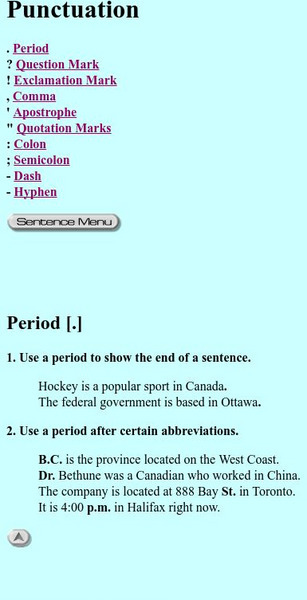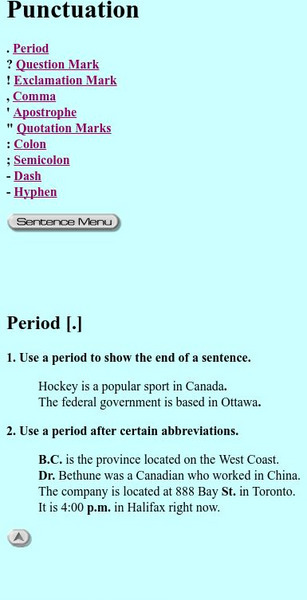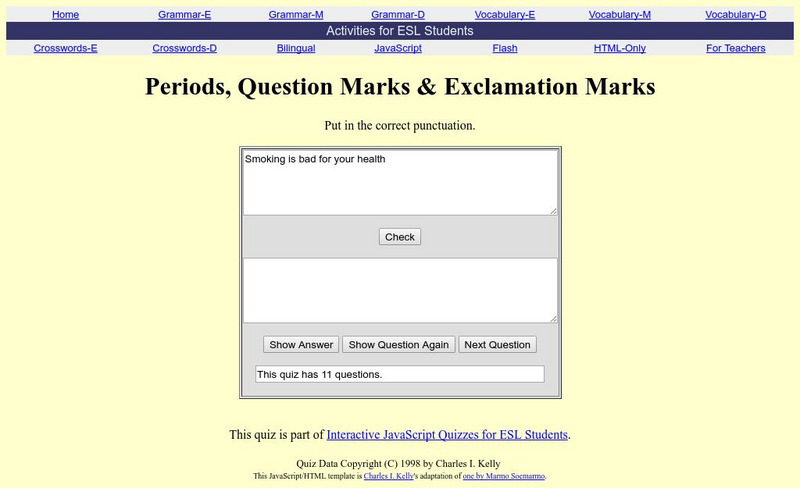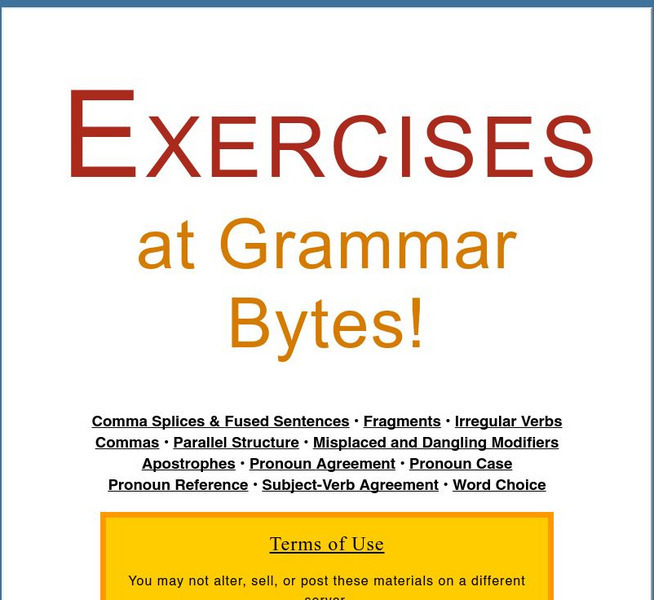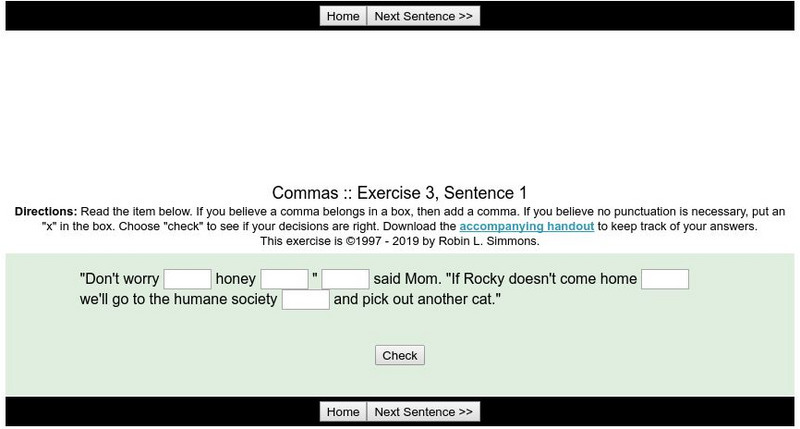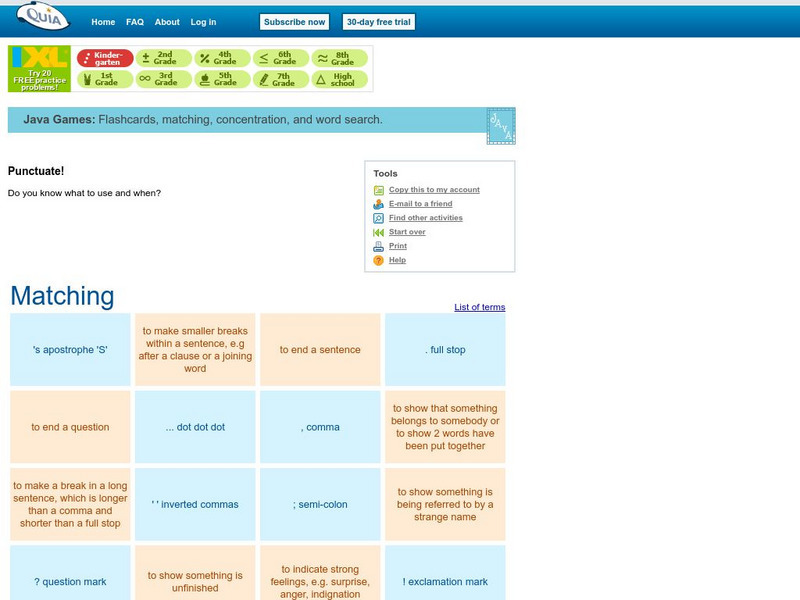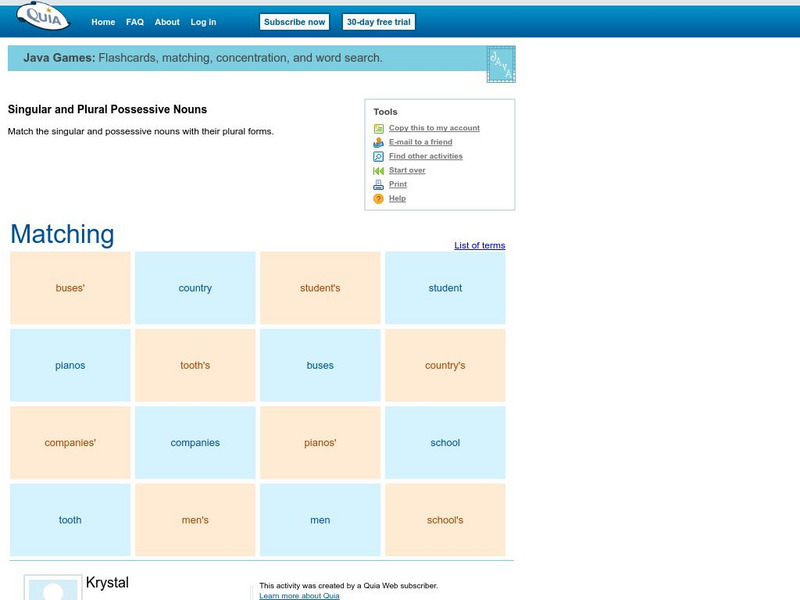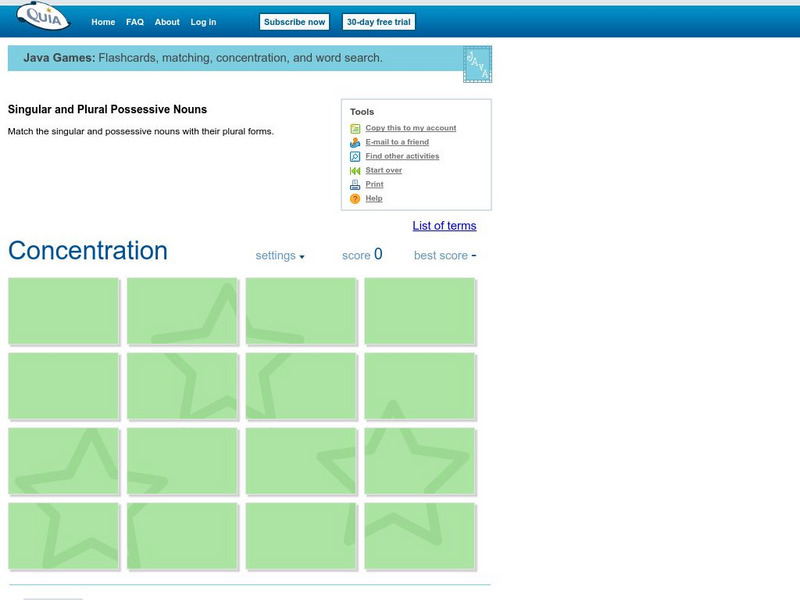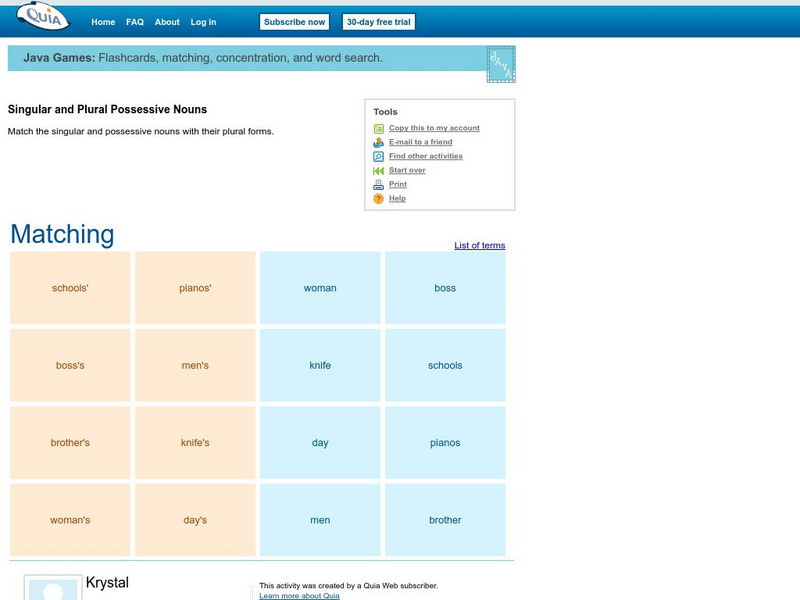Hi, what do you want to do?
PBS
Pbs Learning Media: Using Commas and Quotations
Quotations and commas are two very useful punctuation tools that indicate dialogue and brief pausing in sentences. Learn how to use them correctly! [0:46]
PBS
Pbs Learning Media: How to Use Commas for Introductory Elements
Introductory elements are clauses, phrases, and words that appear before the main part of a sentence. Without commas, the reader may be confused. Use commas to indicate properly the who and the what. [0:40]
Khan Academy
Khan Academy: Recognizing Run Ons and Comma Splices
Run-on sentences and comma splices happen when a writer isn't careful with commas. Let's see how you do!
Khan Academy
Khan Academy: Commas and Introductory Elements
Basically, you can use commas at the beginning of sentences to set up an introduction.
Khan Academy
Khan Academy: Commas and Adjectives
Learn about coordinate adjectives and putting commas between them.
Khan Academy
Khan Academy: Apostrophes and Plurals
Apostrophes are generally not used to form English plurals, but there are a few exceptions.
Khan Academy
Khan Academy: Meet the Comma
Commas separate parts of sentences from each other, and they do so in many different ways.
Alabama Learning Exchange
Alex: Story Add Ons
This is a technology-rich lesson plan which allows students to explore proper language conventions while utilizing portable keyboards for word processing.
Road to Grammar
Road to Grammar: Fluent: Word Strips
Race against the clock to move through columns and create word with four letters.
Road to Grammar
Road to Grammar: Word Slamm
Race against the clock to create words by catching, sorting, and organizing letters.
ACT360 Media
Writing Den: Punctuation
A brief description of the rules, usage, and examples of the each type of punctuation used when building a sentence.
ACT360 Media
Writing Tips: Punctuation: Period
A brief description of the rules, usage, and examples of the "period" in English punctuation. Includes basic information concerning period use in abbreviations as well.
ACT360 Media
Writing Tips: Sentence Builder: Comma
A brief description of the rules, usage, and examples of the "comma" in English punctuation.
ACT360 Media
Writing Tips: Sentence Builder: Apostrophe
A brief description of the rules, usage, and examples of the "apostrophe" in English punctuation.
TESL Journal
Activities for Esl Students: Periods, Question Marks & Exclamation Marks
Focus students' understanding of punctuation with this language arts skill-building site. Explore the usage of periods, questions marks and exclamation marks through this interactive activity that ask students to read a sentence and...
Robin L. Simmons
Grammar Bytes: Commas
This site offers links to five interactive practices using commas and accompanying handouts. Adobe Reader is required.
Robin L. Simmons
Grammar Bytes: Commas: Exercise 3
This comma exercise requires students to place commas in boxes within sentences where needed; if none is needed, they place small x's in the boxes. A downloadable handout is provided. Adobe Reader is required for the handouts.
Courseware Solutions
Wordville: Commas: A Fun Way for Kids to Practice Using Commas
In this activity, students add commas as needed to friendly letters. As they click where the commas belong a dragonfly or a butterfly inserts the commas.
Quia
Quia: Punctuate!
Click on the two cards to match each punctuation mark with one of its usage rules.
Quia
Quia: Singular and Plural Possessive Nouns
Match singular and possessive nouns with their plural forms in this click and match game. Java is required.
Quia
Quia: Singular and Plural Possessive Nouns
Flashcards offers an electronic version of flashcards to practice singular and plural possessive nouns. On the front of each card is a noun; click on the card to reveal the possessive of that noun.
Quia
Quia: Singular and Plural Nouns
This Concentration-style has students match singular and possessive nouns with their plural forms while remembering where each of the match pairs are located. Java Script is required.
Quia
Quia: Singular and Plural Possessive Nouns
This matching game asks students to match singular and possessive nouns with their plural forms. Java is required.















